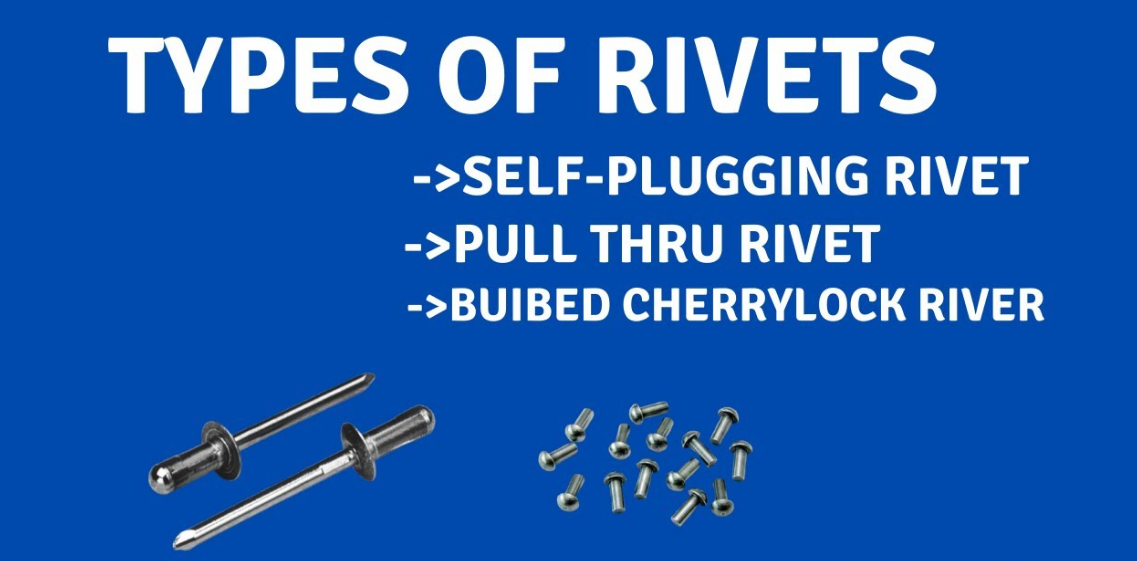There are many different types of rivets on the market today, each suited to different applications and uses. Before you get started with your next project, it’s important to know what kind of rivet is best for the job and why.
Whether you’re working on automotive equipment or building motorcycle engines, these are the different types of rivets you need to know about so you can make the right choice for your application. You’ll want to know about head styles, materials, lengths and more when you’re picking out the type of rivet that will work best with your current project and needs.
Common Type: Solid Rivet
Rivets are the most common type of fastener and are often used as a substitute for screws or nails. They come in two different types, solid and hollow. Solid rivets typically have a head on both ends that is hammered into place to make a solid bond between two pieces of metal, while hollow rivets only have one end with a head that is hammered into place to form a tube shape which is then filled with molten lead or another material to create a seal.
Hollow rivets are great when you need to fill space between different parts or if you need an additional layer of protection against corrosion. They’re also good if you want something lightweight because they weigh less than other types of fasteners. The downside to this type of rivet is that it doesn’t have much structural strength, so it’s not recommended for heavy duty jobs. These can be found at any hardware store.
Common Type: Hollow Rivet
Hollow rivets are a common type of rivet and come in many shapes, sizes and materials. The hollow center is what makes them so versatile as they can be used to hold two pieces together but also allow a space to create an airtight seal. It’s important that you choose the right hollow rivet for your project as there are many different types such as compression, expansion or solid.
For example, if you want to use it on thin sheet metal then choose an expansion-type while if you’re using it on heavier material like steel or aluminum then choose a solid. They can also come with either a coarse thread or fine thread depending on which is best suited for your application. A thicker gauge (coarse) will help make it easier to remove the rivet later down the line if needed.
If you need something that will stand up to heavy loads then go with a thicker gauge and consider buying alloys instead of stainless steel. A good rule of thumb is: a thinner gauge (fine) will require less torque during installation and will be easier to install in tight spaces, while a thicker gauge (coarse) will require more torque during installation but offer greater strength.
Other Common Types of Rivets
- Sheet metal rivets are a type of fastener with a cap that is placed over one end. The cap has a hole and is hammered down onto the other piece of metal. Sheet metal rivets are typically used in situations where you don’t want to see any evidence of a rivet head on your project, such as when making signs or crafts.
- Solid rivets are also used in situations where you don’t want to see evidence of a rivet head on your project, but they differ from sheet metal rivets because they have no cap covering them. These types of rivets can be hammered directly into place, which is why they’re also referred to as blind or solid rivets.
- Self-piercing rivets can either be flat head or countersunk depending on the application. They are like solid rivets, except they come with a pre-made hole so all you need to do is hammer it through two pieces of metal at once (hence self-piercing).
- Buttonhead rivets (also called barbed studs) are used mainly for light industrial purposes. They’re great for applications that require permanent assembly and minimal disassembly because once it’s set up, you won’t need tools to take it apart again.
- Fender washers look like buttons with one side domed outward so they can accommodate a larger surface area than just flat washers do.
For More Information Visit Now: https://yijinsolution.com/top-10-bolts-and-nuts-manufacturers-in-china/




